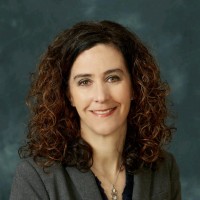Having a Leg up on Readiness when a Global Pandemic Hits
When you prepare for the possibility of a hurricane every year, you have a leg up on readiness when a global pandemic disrupts the financial markets. So says Alison Romano, Deputy Chief Investment Officer of the Florida State Board of Administration (SBA). The $200 billion SBA invests the assets of defined benefit and defined contribution plans for employees from a broad array of Florida’s state and local government agencies. It also manages the Florida Hurricane Catastrophe Fund, which provides additional insurance capacity in the state by serving as a source of reimbursement for insurers in case of catastrophic hurricane losses.
Romano says, “The reality is that despite all this market upheaval and social upheaval, we have structured ourselves from a portfolio perspective to focus on the long-term. And we have an organization and team in place to navigate different types of environments, so I wouldn’t characterize us as doing anything different than what we do. We’ve been able to stick to our knitting.” And do so efficiently from home, she adds, since the SBA has long had extensive disaster recovery plans that could be implemented during hurricane season.
 SBA has targets of 53% for global equities, 18% for fixed income, 10% for real estate, 6% for private equity, and “12% for what we call strategic investments, which we characterized as everything that doesn’t fit nice and neatly elsewhere,” Romano says. About 45% of the assets are managed in-house. Recent events haven’t prompted any substantial changes. “I think that within each of our asset classes, there is conviction behind where we’re putting money to work,” according to Romano, who returned to her native Florida and joined SBA in 2009 after seven years at Goldman Sachs in New York, San Francisco, and Chicago.
SBA has targets of 53% for global equities, 18% for fixed income, 10% for real estate, 6% for private equity, and “12% for what we call strategic investments, which we characterized as everything that doesn’t fit nice and neatly elsewhere,” Romano says. About 45% of the assets are managed in-house. Recent events haven’t prompted any substantial changes. “I think that within each of our asset classes, there is conviction behind where we’re putting money to work,” according to Romano, who returned to her native Florida and joined SBA in 2009 after seven years at Goldman Sachs in New York, San Francisco, and Chicago.
Since markets turned dicey in February, Romano says, “I would say our first priority has been liquidity. We have monthly beneficiary payments that we need to meet. Secondly, we know that in periods of market dislocation, there’s likely to be an increase in capital calls as our partnerships see more opportunity or need shoring up, and we want to honor those commitments.”
SBA has another reason to be careful about liquid assets. In November, 2007 SBA froze its money market fund, the Local Government Investment Pool (LGIP). The freeze came after reports that it had a couple of billion dollars in illiquid structured investment vehicles bought from Lehman Brothers which set off what Institutional Investor magazine called “an old-fashioned run on the bank.” Following the freeze, and the abrupt resignation of the SBA’s then-executive director, SBA focused on restoring trust in its money market fund, now renamed the Florida PRIMETM. “Cognizant of this history,” Romano says, these days, “We have actually been providing a substantial amount of information” to PRIMETM investors. For example, “We had two calls with investors in the strategy,” she says, adding that there were 110 participants on the first call. And overall, “With strict new laws, policies, and guidelines, there haven’t been notable outflows, and the fund has seen year over year growth” she says.
Beyond focusing on liquidity, according to Romano, there has been some attention to rebalancing. Depending on a particular fund’s structure, there are numerous ways to approach market volatility. Other institutions may have been aggressively rebalancing, but she says in the current market, “We don’t know where the bottom is. We’re not actively tactical at the total fund level; we are thoughtful about rebalancing.” She adds, “We certainly want to get back to our target range,” but “we don’t want to jump back in” all at once without considering market conditions.
Romano emphasizes that “We’re not like some other plans who say, ‘Assets are overvalued; so we’re going to take 10% off the table.’ While that may be an effective model for some plans, that’s not how we operate.” As she puts it, SBA “is a big ship to steer, and we generally don’t move quickly; we move purposefully.”
Alison Romano is a member of II Network, to discuss the content of this article and further engage with her, comment below.
